[information]On March 21, the Faculty of Arts & Sciences voted for a resolution of “no confidence” in President Lewis Duncan, the first instance in Rollins history.
For complete coverage of this story, review the following articles:
- The Sandspur’s initial coverage of the no confidence vote including a podcast with Vice President of the Faculty Dr. Dexter Boniface.
- The Sandspur’s article reflecting on President Duncan’s response to the no confidence vote.
- The A&S faculty’s response to President Duncan’s statement (the statement below).
[/information]
While the precipitating incident for the present A&S action seems to have been ongoing discussions within our College of Professional Studies regarding development of an undergraduate business major, it also reflects a continuing strain over the past several years regarding appropriate faculty engagement in determining institutional strategic vision and direction.
Such tensions are certainly not unique to Rollins in today’s quickly evolving higher education environment, as one can quickly gather from reviewing The Chronicle of Higher Education, nor are they unique in Rollins’ own history. Our 12th president, Thaddeus Seymour, has described to me his own such challenges here at Rollins within his presidency, and most famously our eighth president, the iconic Hamilton Holt, even experienced the protest resignation of a number of senior faculty who left to form Black Mountain College in North Carolina. Since then, the shared governance process at Rollins has become even more complex as we have evolved into an academic community that now includes residential day undergraduate programs in A&S and Professional Studies, both undergraduate and graduate programs in our evening Hamilton Holt School, and a growing variety of MBA, master’s, and doctoral programs in the Crummer Graduate School of Business. We offer all of these programs in the context of an applied liberal education, for which Rollins has become nationally recognized.
We believe, factually, that the principles of shared governance with the faculty have been honored in every specific matter of A&S concern, and are open to their review.
I believe we have made great efforts to include opportunities for faculty participation in the leadership guidance of our institution. Faculty have been substantively engaged in our multiyear strategic planning exercise, including faculty co-chairs for every major committee contributing to this effort; are significantly involved in our current Quality Enhancement Plan development and Demonstration of Learning Team; and continue to be included in the institutional Planning and Budget Committee that oversees all major resource allocation and annual budget decisions. Additionally, as academic physical facilities are built or renovated, faculty have been closely involved in the design of these spaces. So, while we are committed to exploring additional means of improving faculty participation, I must respectfully disagree with the assertion that faculty have not been adequately engaged in consultative administration of the College.
In the process of shared governance and curricular delegation to the faculty, the policies and deliberative procedures can become ambiguous, and occasionally contradictory. A common confusion is in regard to which group of faculty has authority over which elements of the curriculum. The creation of the College of Professional Studies (CPS) is an oft-cited example of the A&S faculty feeling disenfranchised from their perceived central role of having approval oversight of the entirety of the undergraduate curriculum at Rollins, including major courses of study that now fall under primary purview of the faculty of CPS.
Most issues of jurisdiction, approval authority, and resolution of disputes fall to our provost and vice president for academic affairs. As the chief academic officer of the College, she serves as the campus leader for all of our academic initiatives and programs, as well as overseeing the strategic planning process. She also serves as the primary day-to-day conduit between the administration and the faculty. I am distressed that she was surprised by the A&S faculty vote, since it seems so counter to the collegial working partnership with faculty she has worked so hard to foster. We believe, factually, that the principles of shared governance with the faculty have been honored in every specific matter of A&S concern, and are open to their review.
Finally, I would like to affirm that we will continue to work with any and all faculty who are willing participants in the process of shared academic governance. We will work to improve the opportunities for constructive shared dialogue. And we will work to always honor the jurisdictional authorities of our various faculty constituencies as we move the institution forward.
Lewis M. Duncan
President
Rollins College

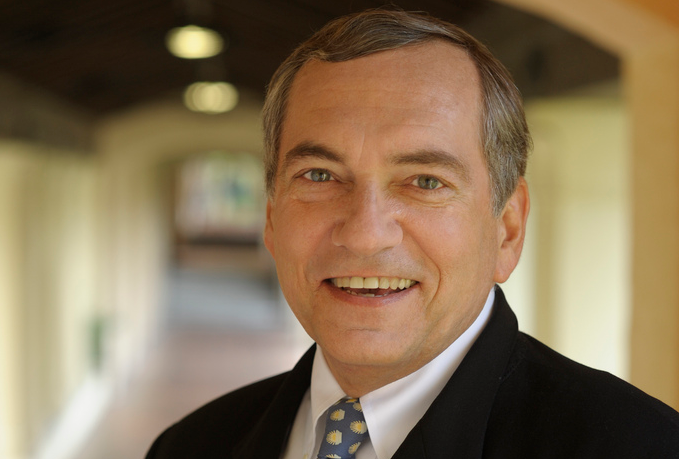
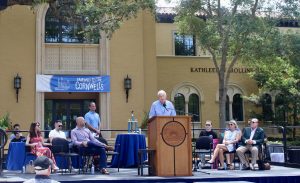
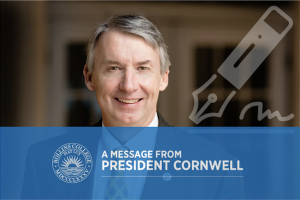
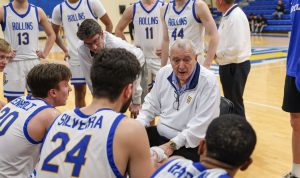

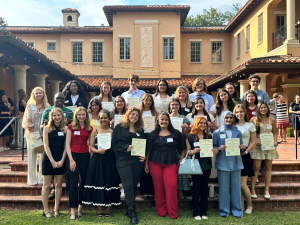
[…] his recent response in The Sandspur to a recent article in The Orlando Sentinel, President Duncan admirably puts into […]
[…] President Duncan’s complete response to the no confidence vote. […]